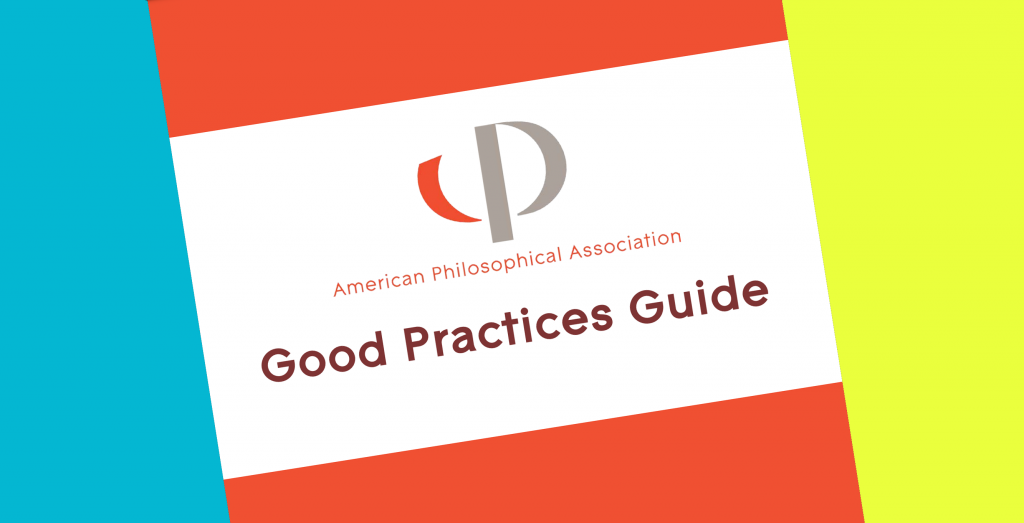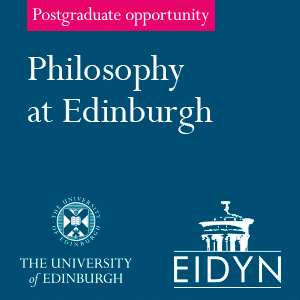APA Publishes “Good Practices Guide”
The American Philosophical Association (APA) has published its Good Practices Guide, “a set of recommendations to help philosophers create and maintain an academic community based on mutual respect, fairness, inclusivity, and a commitment to scholarship and learning.”
The document, over 90 pages long, contains sections on interviewing and hiring, teaching and supervising students, professional development of faculty and students, communication, social events, bias and discrimination, and mental health.
Readers may recall that a draft of the Guide was circulated two years ago for the purposes of soliciting feedback.
The Guide was developed by an APA task force chaired by Peter Railton (Michigan) with members Mi-Kyoung “Mitzi” Lee (Colorado), Diane Michelfelder (Macalester), and Robin Zheng (Yale-NUS).
In their preface to the Guide, its authors write:
A Good Practices Guide—we decided this was a more accurate representation of what we might hope to achieve than “Best Practices”—does not attempt to draw lines regarding what is strictly permissible or impermissible. Rather, it is a set of recommendations based upon the accumulated experience of faculty, administrators, and students, intended in part to address some of the underlying conditions that can give rise to the problems with which a code of conduct deals, and to suggest structures and practices that can, if in place, help promote constructive and equitable responses to these problems. More positively, these recommendations are meant to suggest policies and practices that may help us to realize the sort of academic community we aspire to—a community of mutual respect and fairness, of commitment to scholarship and learning, of open-mindedness and inclusivity, and of concern for nurturing the next generation of philosophers and members of the society at large.
Naturally, members of the APA will differ over the interpretation of these values, their priority, and how to understand the responsibility of individuals, academic units, teaching programs, students, journals, and professional associations in attempting to realize these values. We view this Good Practices Guide not as an attempt at a definitive statement, but as a starting point, and as a basis for continuing discussion and development of good practices. Similarly, this guide does not purport to be comprehensive. Rather, it focuses upon a number of areas where special challenges arise in the promotion of mutual respect, fairness, and inclusivity, and where experience and research indicate effective ways of meeting some of these challenges.
The current version of the Guide can be downloaded here.



